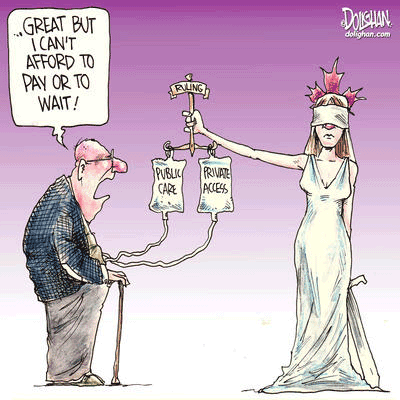Access Is A Null And Void Concept
I’m often asked for my opinion of and reaction to our new healthcare reform.
My immediate reaction is to correct the concept that this legislation has anything to do with healthcare. It is more properly insurance reform.
I stopped accepting insurance payments in 1996. In the intervening years, I’ve successfully operated a cash-only practice and in the past few years have been drawn into coaching other doctors in how to operate such a practice and consulting with people who are tired of insurance tyranny.
The term bandied about in the recent debates about healthcare reform is “access.”
The talking heads — both media and governmental — claimed a large number of people were uninsured. I recall numbers in the range of 40 million, and I’ve heard such numbers debunked.
Be that as it may — the next thing the talking heads mention is giving more people access to healthcare. As if these two concepts are related.
Assuming there actually were 40 million people without insurance, it is hard to imagine how our new legislation gives all these people access they never had before.
Access is a simple concept. If you want to travel, you have access to flying first class (unless you are on a government watch list). You may not have the money to do so — and have to travel by Greyhound. However, you must admit — you DO have access to flying first class.
Likewise, we now have people who will have access to insurance — for example through an employer. However, even if the employer pays 50% of the insurance premiums, the employee may not be able to afford the other 50%.
I’ve run into the problem of access many times — especially when dealing with the publicly funded healthcare systems such as Medicare and Medicaid (Medi-Cal in California). A person who has Medi-Medi (the benefits of state and federal insurance combined) has a limited number of days of coverage. When that cut-off date arrives, the person is dismissed from the hospital — cured or healed or not.
If that same person has subsequent problems, the hospital won’t accept them because they’ve used up all their eligibility days. That is, unless they want to pay out of pocket.
Now we will have a whole nation of people who have access to insurance, but may not be able to afford it, and may exceed the limitations of such insurance.
Access is not real helpful in such cases.
In the concept of “access” there is no guarantee of quality. I’ve had patients refuse hospitalization because the only institution that would accept their insurance (such as the welfare programs) was considered a “hell hole” by the patient, and any other hospital deemed superior didn’t participate in the welfare programs.
It was the old problem of having access to flying first class but only being allowed on the Greyhound bus.
We have choices. People are brainwashed into thinking their only option is whatever insurance pays for.
Medical savings accounts have been around for a long time. People can stash away pre-tax dollars in a savings account and use it to pay for healthcare when needed.
Insurance is best used for major expenditures — such as in auto or home insurance. Routine maintenance and upkeep are best paid out of pocket and insurance called into play for major or catastrophic situations.
The health insurance industry has created a dependency to keep more people in their systems and to boost their earnings through the HMO type of systems.
There are alternatives. You just have to seek them out. Don’t rely on the government or the commercial media to give you the straight information.
Filed under Healthcare reform by on Apr 29th, 2010. ![]()

Leave a Comment